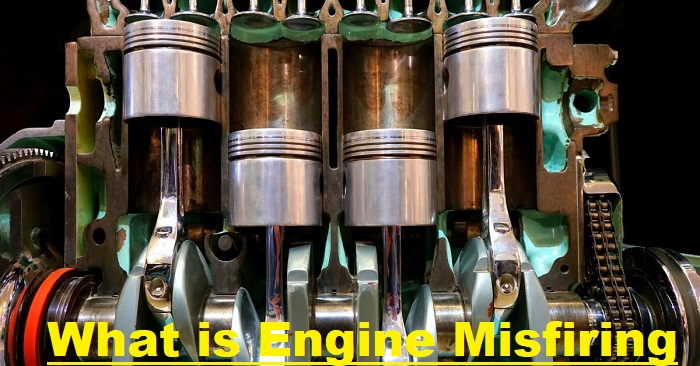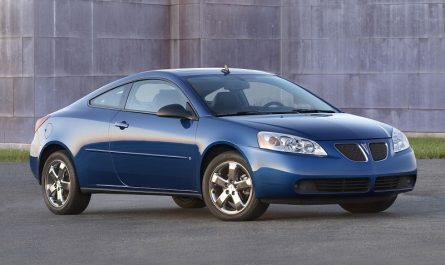Engine misfiring is a phenomenon that car owners frequently encounter, causing unexpected disruptions in a vehicle’s smooth operation. This issue occurs when one or more of the engine’s cylinders fail to properly ignite the fuel-air mixture, leading to a loss of power and reduced engine performance. Such misfires can manifest as rough idling, stalling, or poor acceleration, and they often require immediate attention to prevent further damage.
What is Engine Misfiring?
In a healthy engine, the combustion process in each cylinder occurs without interruption. When a misfire happens, it means that a cylinder has failed to produce the necessary combustion, resulting in an incomplete power cycle. As a result, the engine’s efficiency drops, leading to various performance issues.
The most common causes of engine misfire are issues with spark plugs, fuel injectors, or the ignition system. A misfire can happen at any point during the engine’s combustion cycle, causing everything from subtle vibrations to complete engine stalls.

Common Causes of Engine Misfire
Engine misfires arise from various internal and external factors within the engine. The causes are often linked to faulty components that disrupt the engine’s combustion process. Let’s explore the primary culprits:
Faulty Spark Plugs
Spark plugs ignite the air-fuel mixture in the combustion chamber. When a spark plug wears out or malfunctions, it struggles to create a sufficient spark, leading to an incomplete combustion cycle.
- Symptoms of Spark Plug Failure: When spark plugs fail, the engine may experience rough idling, hard starts, and a noticeable decrease in fuel efficiency.
Ignition Coil Problems
Ignition coils are responsible for converting the battery’s voltage into a spark that ignites the fuel. A malfunctioning coil can weaken the spark or cause misfires in multiple cylinders, especially during acceleration.
- Symptoms of Coil Problems: Misfires caused by ignition coils often lead to hesitation, loss of power, and engine surging.
Clogged or Malfunctioning Fuel Injectors
Fuel injectors deliver the precise amount of fuel to the engine. A clogged or faulty injector can lead to an insufficient fuel supply, resulting in poor combustion.
- Symptoms of Injector Issues: Engine misfires caused by bad injectors often lead to rough idling, sluggish acceleration, and fuel consumption issues.
Air-Fuel Ratio Imbalance
The air-fuel ratio plays a critical role in engine performance. If there is an imbalance—either too much fuel or too little air—the combustion process becomes inefficient, leading to engine misfires.
- Symptoms of Air-Fuel Ratio Issues: Misfires due to air-fuel imbalance can cause a vehicle to run sluggishly, consume more fuel, or stall unexpectedly.
Vacuum Leaks
A vacuum leak allows unmetered air to enter the engine, disrupting the air-fuel mixture. This imbalance can cause the engine to misfire.
- Symptoms of Vacuum Leaks: If the misfire is caused by a vacuum leak, you may notice a rough idle, engine surging, or poor throttle response.
Symptoms of Engine Misfire
Detecting a misfire in your vehicle can prevent further complications. Here are some of the common signs to watch out for:
Rough Idling
If your vehicle shakes or vibrates more than usual when it’s idling, this could indicate a misfire. The irregular combustion disrupts the smooth operation of the engine, causing noticeable shaking.
Sudden Loss of Power
Engine misfires often result in reduced engine power, leading to poor acceleration, especially during rapid acceleration or heavy load conditions.
Poor Fuel Economy
A misfiring engine burns fuel inefficiently, leading to a drop in miles per gallon (MPG). You’ll notice your fuel consumption increasing, even though you’re driving under normal conditions.
Engine Stalling
Severe misfires can cause the engine to stall altogether, especially if they occur at low RPMs or during idling. This is often accompanied by rough idle and erratic engine behavior.
Check Engine Light (CEL)
The Check Engine Light (CEL) is one of the most common indicators that something is wrong with the engine. If the misfire causes significant issues, the CEL will be triggered, and a diagnostic trouble code (DTC) will be stored in the engine control unit (ECU).
How to Diagnose Engine Misfire
Diagnosing an engine misfire is an essential first step toward fixing it. Here’s how to identify the cause of the problem:
Use an OBD-II Scanner
An OBD-II scanner is a diagnostic tool that plugs into your car’s computer system. It can help detect misfire-related trouble codes, which will point you in the right direction. For example, a code like P0301 indicates a misfire in cylinder 1.
Inspect the Ignition System
If the misfire codes suggest an issue with the ignition system, inspect components like spark plugs, ignition coils, and wires for signs of wear or damage.
Check the Fuel System
Ensure that fuel injectors are operating correctly. If they are clogged, dirty, or malfunctioning, they can disrupt fuel delivery to the combustion chamber and cause misfires.
Perform a Compression Test
A compression test can help identify internal engine issues like damaged valves or piston rings, which can contribute to misfires.
How to Fix Engine Misfire
Once you identify the cause of the misfire, addressing the underlying issue is the key to fixing the problem. Here’s what you can do:
Replace Faulty Spark Plugs or Ignition Coils
If the misfire is due to worn-out spark plugs or faulty ignition coils, replacing them will restore proper ignition and eliminate misfires.
Clean or Replace Fuel Injectors
Clogged or damaged fuel injectors can be cleaned or replaced to restore proper fuel flow and prevent misfires caused by poor combustion.
Fix Vacuum Leaks
If a vacuum leak is causing the misfire, replace damaged hoses, gaskets, or seals to restore the proper balance of air and fuel.
Repair Timing Issues
Misfires caused by timing issues, such as a worn-out timing belt or chain, can be fixed by replacing the timing components and ensuring they are properly aligned.
Preventing Engine Misfires
While engine misfires are common, taking preventive measures can reduce the likelihood of them happening:
- Regular Maintenance: Replace spark plugs, ignition coils, and fuel injectors at the recommended intervals.
- Keep Fuel System Clean: Use fuel system cleaners regularly to prevent injector clogs and maintain proper fuel flow.
- Address Issues Early: Don’t wait for the problem to worsen. If you notice symptoms like rough idling or poor acceleration, get your vehicle checked promptly.
Conclusion
Engine misfires can significantly impact your vehicle’s performance and fuel efficiency. Recognizing the signs of a misfire and knowing how to address the root causes—such as faulty spark plugs, ignition coils, fuel injectors, or air-fuel ratio imbalance—can save you from costly repairs down the line. Regular maintenance and timely repairs will ensure your engine runs smoothly, preventing future misfires and keeping your car in optimal condition.


